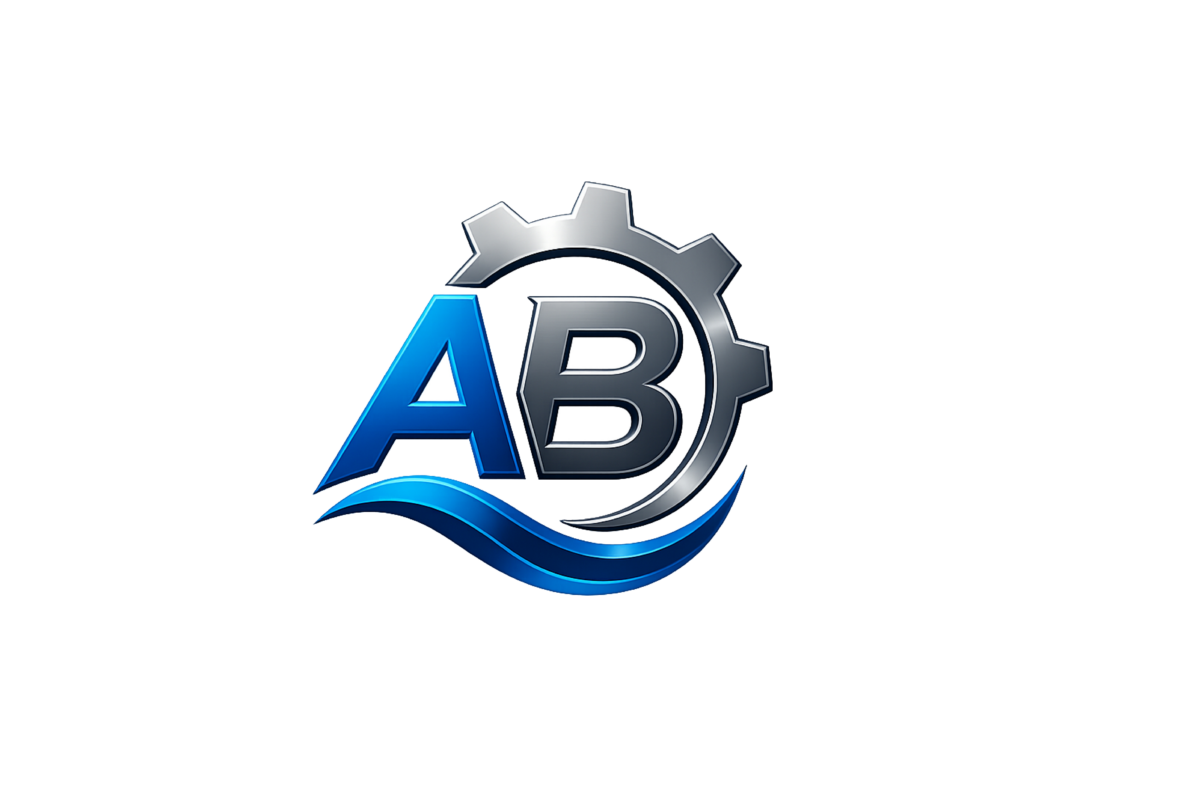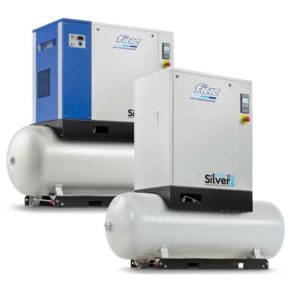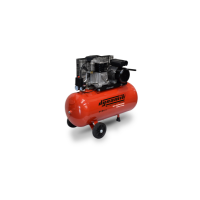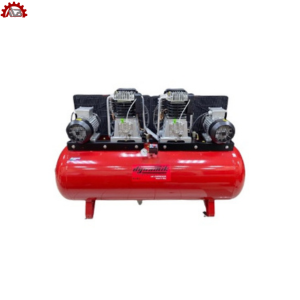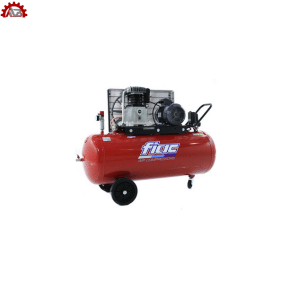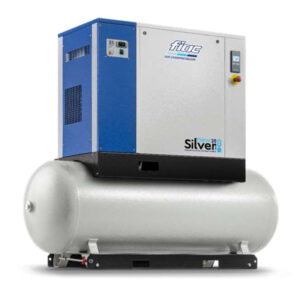Best Fiac Air Compressors in UAE – Complete Buying Guide, Prices & Top Models for 2025
Fiac Air Compressors Buying Guide – UAE & GCC Region
Fiac is a famous Italian air compressor brand. Since 1977, Fiac has produced compressors and earned a reputation for quality and reliability. Fiac blends Italian engineering with solid build quality, so you get a compressor you can trust anywhere. Plenty of workshops and businesses in the UAE and beyond count on Fiac compressors every day.
For over 30 years, Fiac compressors have performed well in the Middle East’s harsh climate. Customers in places like Dubai, Abu Dhabi, Riyadh, and beyond use them.
This buying guide will help you choose the best Fiac air compressor for your needs in the UAE and GCC.
First, we will explain the types of compressors Fiac offers and the key features to consider.
Next, you will find tips for picking the right model based on your work requirements and environment.
Whether you need a small unit or an industrial compressor, this guide will help.
Fiac Air Compressors in the UAE & GCC
Fiac air compressors are popular in the UAE and Gulf region.
The brand has a strong presence in the UAE. Local dealers and service centers are always there to help you with your Fiac air compressor.
Plus, lots of businesses in the Middle East pick Fiac for its great reputation and easy access to parts and service.
For example, shops in Dubai carry Fiac compressors ranging from handy 100L models to large 1000L industrial units. They also provide expert support.
As a result, buyers can quickly find the right machine and get maintenance or spare parts without hassle.
Fiac builds its compressors to handle the UAE’s tough climate without missing a beat.
They can operate reliably even in high heat and dusty environments.
Moreover, lots of GCC industries rely on Fiac compressors every day to keep their tools running.
Fiac’s quality and local support in the UAE and GCC keep you covered with confidence.
When you buy a Fiac air compressor in Dubai or anywhere in the Gulf, you get a reliable machine. Moreover, you benefit from strong local support.
Regional Tip: Fiac designs its compressors to meet local standards. Most small Fiac units run on 220–240V single-phase power (which is the standard in the UAE), so they plug into normal outlets. Larger industrial Fiac compressors use three-phase power, common in factories across the Middle East. Always check that the compressor’s voltage and specs match your location’s requirements before purchase.
Types of Air Compressors (Fiac Models)
Air compressors come in different types. Fiac manufactures various models to suit different needs. The main types of Fiac air compressors are piston compressors, rotary screw compressors, and portable/specialty models. Understanding these types will help you decide which is best for you:
Piston Air Compressors
Piston compressors are the most common type.
They use a piston and cylinder, much like a car engine, to compress air.
Fiac’s piston air compressors are popular choices for garages, small workshops, and general use. People sometimes call them reciprocating compressors.
Here are a few key points about piston compressors:
- How they work: A motor drives pistons up and down to pump air into a tank. This builds up pressure (measured in PSI) in the tank.
- Use cases: Piston compressors are great for intermittent use. This means they work in short bursts – the motor runs to fill the tank, then rests while you use the air. They are ideal for tasks like inflating tires, using a nail gun, or running a spray paint gun for a short project.
- Oil-lubricated vs Oil-free: Fiac offers piston models that are oil-lubricated and some that are oil-free.
First, oil-lubricated piston compressors use oil to keep parts running smoothly. These models are durable and suited for heavier duty cycles. But you’ll still need to check and change the oil often to keep it running well.
On the other hand, oil-free piston compressors use special materials that don’t require oil. They have lower maintenance needs and provide cleaner air with no risk of oil mixing into the airflow.
Therefore, Use oil-free Fiac compressors for clean tasks that must stay oil-free.
- Pros & Cons: Piston units are usually more affordable and simpler in design. They can deliver high pressure for tough jobs.
However, they can be louder and create more vibration than other types. They also get hot if you use them continuously for too long, so they need cooling pauses.
Still, for most home and workshop needs, a piston compressor is a reliable choice.
In summary, Fiac piston compressors are solid, time-tested machines. They come in various tank sizes (e.g. 50L, 100L, 200L, etc.) and horsepower ratings. If you need a dependable compressor for occasional use, a piston model is likely best.
Rotary Screw Compressors
Rotary screw compressors are smart machines built to run non-stop when you need them. Instead of pistons, they use two helical screws (rotors) that rotate and compress the air. Many industrial businesses and large workshops use Fiac’s rotary screw compressors. Key features of rotary screw compressors include:
- Continuous airflow: Screw compressors provide a steady, continuous flow of air. You won’t get that pulsing feeling you usually notice with piston models. This makes them ideal for operating 24/7 or for long shifts. They have a high duty cycle (often 100% duty cycle), meaning they can run non-stop without needing to rest.
- High CFM output: These compressors can supply a large volume of air (high CFM) to power multiple tools or huge equipment at once. For example, a 15 HP Fiac screw model delivers about 50 CFM, ideal for factories or multiple tools.
- Quieter & smoother: Screw compressors generally run quieter and with less vibration than piston types. The rotary mechanism is smooth. Many Fiac screw compressors have enclosures and sound dampening, keeping noise around 69 dB(A) on a 15 HP model. This low noise is great if the machine is near work areas.
- Maintenance: Rotary screws have fewer moving parts, so they experience less wear. They need oil and filter changes but offer long service intervals. Maintenance is important, but a well-kept screw compressor can last a long time.
- Usage: If you run a large workshop or plant, a rotary screw compressor may be best. Factories, large garages, and industrial sites across the UAE use Fiac screw compressors. They are often stationary (fixed in one place) and larger in size.
In short, Fiac designs rotary screw compressors for heavy-duty performance. They cost more upfront but deliver more air and save energy, especially with Variable Speed Drive features. If you need a reliable compressor that works all day without stopping, consider a Fiac screw compressor.
Key Factors When Buying a Fiac Air Compressor
Choosing the right compressor is much easier when you know what to check. Focus on these two essential specs:
PSI (Pounds per Square Inch):
This measures air pressure—how strong the airflow is. Most air tools need at least 90 PSI to work properly. For example, many Fiac models offer up to 10 bar (145 PSI), which is enough for most applications.
CFM (Cubic Feet per Minute):
This shows how much air volume the compressor delivers each minute. High CFM is crucial for tools that run continuously (like spray guns or sandblasters) or if you plan to use several tools at once.
How to Match PSI and CFM to Your Needs:
- Check the PSI and CFM requirements of your most demanding tool.
- Choose a compressor that offers more CFM than your minimum need so it doesn’t struggle to keep up.
- Make sure the max PSI meets or exceeds your tools’ requirements.
- If you’ll use a few tools at once, just add their CFM to see how much air you’ll need.
always better to pick a compressor with a little extra capacity. This way, your Fiac compressor can power all your equipment smoothly without frequent stops.
Motor Power (HP) and Tank Size
Motor Power (HP):
This shows how strong the compressor’s motor is. More HP means the unit can pump air faster and handle heavier workloads. Small Fiac models start around 2 HP, while industrial units go up to 10 HP or more. Higher HP helps refill the tank quickly during use.
Tank Size:
The tank stores compressed air. Sizes range from 50 to 500 liters or more. A bigger tank holds more air, so your tools can run longer before the motor restarts. For example, a 500L tank keeps steady airflow longer than a 50L tank.
How to Choose:
- For light tasks (like inflating tires or occasional nailing), a small tank (50–100L) and 2 HP motor is enough and easier to move.
- For frequent or larger jobs (spray painting, impact wrenches), pick at least a 200L tank and 3–5 HP motor.
- In industrial settings, use 500L tanks and high-power motors (7.5–10 HP) to meet continuous demands.
- Always check you have enough space and the right power supply. Smaller units often run on 220V single-phase, while bigger compressors may need three-phase power.
Whenever possible, choose slightly more capacity than you think you’ll need, so your compressor doesn’t run flat-out all the time.
Duty Cycle & Usage Level
What Is Duty Cycle?
The duty cycle shows how long a compressor can run before it needs a break. For example, a 50% duty cycle means it should run for 5 minutes, then rest for 5 minutes.
Intermittent vs. Continuous Use:
Intermittent Use:
- If you just need short bursts of air, a standard-duty piston compressor works great. It fills the tank, then shuts off while you work.
Continuous Use:
- For non-stop tasks (like production lines or sandblasting), look for compressors with a 100% duty cycle. Fiac designs their rotary screw compressors to handle this with ease. They can run all day without overheating. Some heavy-duty piston models also handle longer runs, but screws are the best choice for continuous work.
How to Choose:
- Be realistic about how often you’ll use the compressor.
- For home or occasional use, a piston unit works well.
- For daily professional use, pick a higher-duty model or a screw compressor to avoid overheating and wear.
Tip: Running a compressor past its duty cycle can damage it over time. When in doubt, remember:
- Piston compressors = intermittent use.
- Screw compressors = continuous use.
Choosing the right Fiac model for your workload ensures better reliability and less downtime.
Noise Level
Why It Matters:
Air compressors can be noisy, so always check decibel levels if you’ll use one in a small space or near people. Higher numbers mean louder sound.
Typical Noise Levels:
- Piston compressors (especially direct-drive) are often 80–90 dB, about as loud as a vacuum or lawnmower.
- Rotary screw compressors are quieter for their size, often around 65–75 dB, similar to a running washing machine.
Low-Noise Options:
- Fiac offers silent models and sound-insulated designs.
- Some oil-free or dual-piston compressors are quieter but may cost more or have lower power.
- Always check product specs for the dB rating before you buy.
Placement Tips:
You can still reduce noise by placing the air compressor outside or in another room with a long hose. Keep the area well-ventilated to help your compressor stay cool.
In summary:
For home or small shop use, aim for compressors under 70–75 dB if possible. In industrial spaces, some noise is fine if you set the compressor away from work areas. Fiac offers quiet screw and silent piston models, so you can pick one that suits your noise comfort.
Maintenance: Oil vs. Oil-Free Compressors
Oil-Lubricated Compressors:
- Most piston and screw Fiac models use oil to lubricate moving parts.
Maintenance Tasks:
- Check oil levels regularly (like checking a car).
- Change oil after a set number of hours (e.g., every 200 hours).
- Replace or clean filters on schedule.
- Drain moisture from the tank to prevent rust.
- Pros: Long lifespan, handles heavy use.
- Cons: Requires regular upkeep.
Oil-Free Compressors:
- Designed with special coatings or materials, so they don’t need added oil.
Maintenance Tasks:
- No oil changes needed.
- Still must clean filters and drain the tank.
- Pros: Lower maintenance, delivers clean air free of oil mist (ideal for food production, painting, labs).
- Cons: May wear out faster under heavy, continuous use.
How to Choose:
- Pick oil-free if you need ultra-clean air and easier upkeep.
- Choose oil-lubricated for heavy-duty tasks and longer lifespan.
Tip:
Regardless of the type, always:
- Drain the tank regularly.
- Clean or replace filters.
- Just check your Fiac manual for when to do maintenance and which oil to use.
After-Sales Support:
Fiac offers strong support and warranties (often 1 year) through UAE/GCC dealers. Sticking with authorized service centers keeps your warranty safe and makes it easy to get real spare parts.
A well-maintained Fiac air compressor—oil or oil-free—will give you years of reliable performance.
Fiac Compressors for Different Needs
Home & DIY Use
For garages and hobbyists, Fiac offers small piston compressors that are easy to use and maintain.
- Recommended: 50–100L tank with a 2 HP motor.
- Why: Enough airflow for inflating tires, using small tools, or light spray painting.
- Tips:
- Choose a wheeled model for portability.
- Consider an oil-free or low-noise model if you work near neighbors.
- Example: A car enthusiast in Dubai might pick a 100L piston compressor (~8–9 CFM) for weekend projects.
Professional Workshops
For auto repair shops, carpentry, or metalwork, you need reliable and powerful compressors.
- Recommended:
- Belt-drive piston compressors (3–5.5 HP, 200–300L tanks) for daily tool use.
- Two-stage piston compressors (up to 500L) if you need higher pressure or more volume.
- Rotary screw compressors (10–20 HP) for continuous use and lower noise.
- Tips:
- Look for cast-iron pumps and efficient cooling.
- If you work on-site, consider portable petrol-engine models.
- Example: A busy Abu Dhabi shop might start with a 270L unit and upgrade as demand grows.
Industrial Applications
Factories and large plants require high-capacity, continuous-duty compressors.
- Recommended:
- Heavy-duty rotary screw compressors (15–20 HP+) for 24/7 operation.
- Systems with multiple compressors, air dryers, and smart controls for redundancy and efficiency.
- Tips:
- Consider Variable Speed Drive (VSD) models to save energy.
- Work with Fiac distributors to design the right setup.
- Example: A Saudi plant might use two 20 HP screw compressors with a large tank to keep air flowing reliably.
In Short:
Whether you’re a hobbyist, professional, or industrial operator, Fiac has a compressor to match your needs. Just choose the right size, power, and type—and rely on Fiac’s regional support for maintenance and parts.
Pricing and Availability in the UAE
Price Range:
Home & DIY Air Compressors:
- Small piston models (50–100L) start around 2,000–4,000 AED.
Workshop Units:
- Mid-size piston compressors (200–500L) cost 5,000–15,000 AED.
Industrial Systems:
- Large rotary screw compressors (15–20 HP) can reach tens of thousands of AED.
Value for Money:
Fiac offers a solid balance of quality and price. While not the cheapest, their Italian-made compressors are durable and reliable, often costing less than ultra-premium brands. Over time, they stay efficient and dependable, helping you save on energy and upkeep.
Price Variance:
Prices can vary slightly between Dubai, Sharjah, and Abu Dhabi because of shipping or dealer policies. Ask for a quote and make sure it covers everything—warranty, delivery, and setup.
Where to Buy:
Fiac air compressor is widely available through:
- Authorized distributors (e.g., Al MOUJ AL ABYADH)
- Industrial suppliers and tool showrooms
- Online platforms (regional marketplaces)
Tip: Always buy from authorized dealers to ensure genuine products and full warranty support.
Stock and Delivery:
- Common piston models (100L, 200L, 500L) are often in stock for immediate purchase.
- Specialized units (large screws, silent models) may require ordering with lead time.
- Spare parts and accessories are readily available in the UAE.
Total Cost of Ownership:
When budgeting, consider:
- Maintenance costs: Oil, filters, and minor parts are affordable.
- Electricity: Larger compressors consume more power, so energy-efficient or VSD models can save money over time.
- Service: Fiac’s strong local support helps extend machine life beyond warranty.
In Short:
In the UAE and GCC, Fiac compressors are well-priced for any need, from hobby to heavy industry. Decide your budget and needs, compare models, and always get quotes from authorized dealers. With Fiac, you get reliable performance and value that lasts.
Maintenance & After-Sales Support
Regular Maintenance Tasks:
To keep your Fiac compressor safe and efficient, follow these simple steps:
- Drain the tank daily to remove moisture and prevent rust.
- Clean or replace air filters regularly to maintain airflow and performance.
- Change oil (if oil-lubricated) as recommended in the manual, usually every few hundred hours.
- Inspect belts on belt-driven models for tension and wear.
- Check for leaks, unusual noises, and dirt around cooling fins.
Fiac’s air compressor strong local presence makes owning and maintaining a compressor hassle-free:
- Warranty Service: Most compressors come with a 1-year warranty. Authorized dealers handle repairs or replacements if needed.
- Authorized Service Centers: These centers in the UAE and GCC keep your compressor running smoothly with skilled repairs. Additionally, they provide advanced maintenance, including pump and motor servicing.
- Spare Parts Availability: Genuine parts like filters, gaskets, and switches are readily available, reducing downtime.
- Expert Advice: Local technicians can recommend maintenance practices for the UAE’s hot, dusty climate.
Extra Tips for Long Life:
- Avoid overworking a small compressor—upgrade if you need more capacity.
- Store it in a shaded, dry, and clean area.
- Address unusual sounds or drops in performance promptly.
- Schedule annual professional check-ups, especially for heavy use.
In Short:
Fiac compressors are durable and built to last. With basic care and Fiac’s trusted support, your compressor will run smoothly for years.
